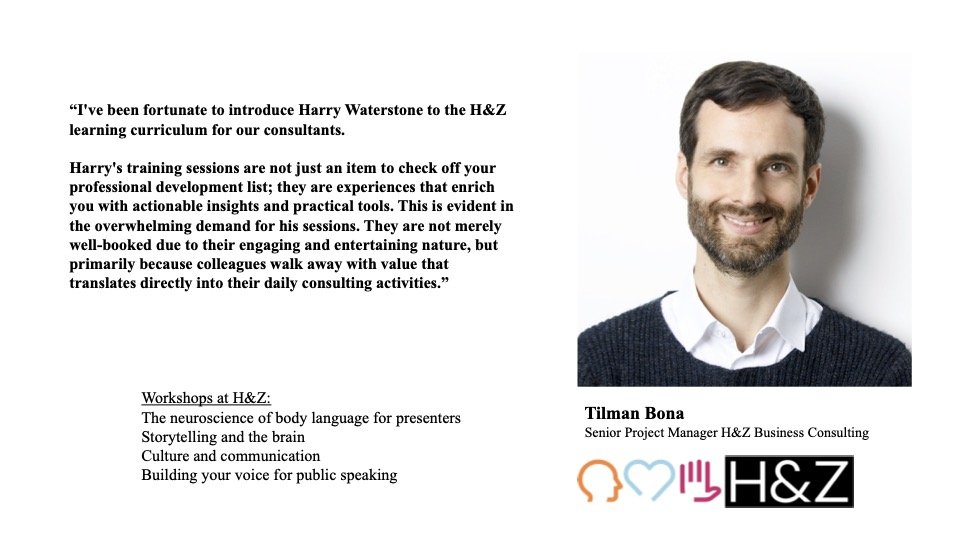Learning Skills for Life
I specialise in leadership and communication and offer training solutions that combine personal experience, scientific research and practical everyday techniques to improve participants' skills, in seminar or one-on-one coaching formats. While it may seem that there are "born leaders" and "natural communicators" and then the rest of us, leadership and communication involve a range of individual competences that can all be learned and improved. Coaching and training can help new leaders learn the basics and gain confidence, or experienced leaders refresh their toolkit and improve their own performance, actively, throughout their entire career.
Leadership
Like many complicated skills, leadership looks easy when it's done right. We can all watch a high-performing leader and marvel at the seemingly effortless blend of people skills and strategic acumen, but what we don't see is the years of hard work that went into perfecting these particular skills.
Leadership is an art that combines two very different skill sets: content-oriented planning and organisation skills to ensure that goals are met, and people-oriented communication, motivation and conflict resolution skills to ensure that a team works at its highest level of productivity while the individual team members develop their own personal skills in a challenging but supportive environment.
I learnt this for myself when I was promoted to a management role at the age of 25. With the intellectual curiosity that comes with an academic mindset, I set about learning as much as I could about this new challenge: reading books, attending seminars and learning from by own observations of my bosses. Now I share the lessons I learned and the pitfalls I encountered with my clients. After all, the only thing better than learning from your own mistakes is learning from the mistakes of others!
Training for new leaders introduces the range of skills required to lead effectively and encourages an attitude of self-awareness and self-improvement.
Coaching for experienced leaders provides a detailed appraisal of strengths and areas in need of improvement and contains a suite of techniques to ensure continual growth.
Presenting and Public Speaking
Public speaking is for many people the source of stress and sleepless nights, a horror to be avoided at all costs. For others, it's a part of their job, something that has to be done. A chore. But what if you could learn how to understand and control stage fright? What if you could learn to captivate your audience and draw them into the world you want to show them and leave them entranced, entertained and wanting to find out more?
There's a sound evolutionary reason why we feel nervous speaking in front of a room full of people. In an important sense, we're not designed for public speaking and our natural instincts and reactions can be a hinderance to delivering a gripping and effective presentation. I draw on my experience performing on stage, as a public debater, stage actor and singer and more recently, a trainer, to provide a comprehensive toolkit for presentations of any kind. Whether it's a business presentation to colleagues, a sales pitch to prospective clients or a speech to an audience of thousands, you can turn nerves into energy and make your presentation something that people are still talking about, weeks and months later.
Intercultural Communication
As our world becomes more and more international, we find ourselves communicating and doing business with people from different cultural backgrounds, often with surprising and unintended results. For expats living and working abroad, the experience can be even more intense, a stranger in a strange land.
By identifying and understanding the cultural values that underpin and determine the surface differences between two cultures, we can learn to be more positive and more constructive in situations that would otherwise lead to discouragement and frustration. We can learn more about our own culture as well as the cultures of others, and learn how to minimise misunderstandings and avoid the pitfalls of intercultural communication.
Targeted study of a particular target culture can prepare participants for the challenges that will arise in communicating with people who were brought up within that set of cultural norms.
Here are some of the firms and organisations where I have delivered trainings.




























